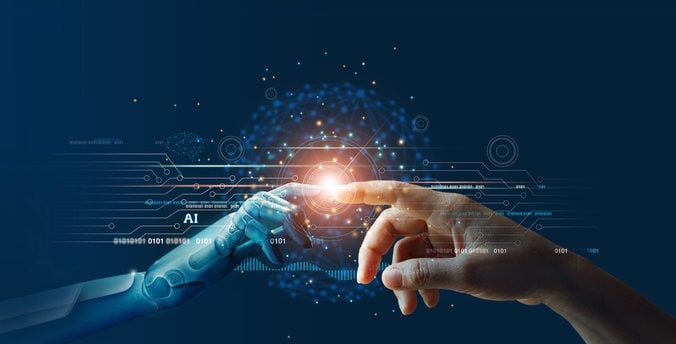The Economic Impact of Artificial Intelligence on Jobs, Productivity, and Education
How AI Affects Our World
Rehaan Mundy
5/28/20243 min read


Introduction to AI and Economic Growth
Artificial Intelligence (AI) is changing the world rapidly. From self-driving cars to smart assistants like Siri and Alexa, AI technologies are making businesses more efficient and boosting economic growth. In this blog post, we will explore how AI impacts jobs, productivity, and education.
Job Displacement and Creation
One big worry about AI is that it might take away people's jobs. Robots and AI systems can do many tasks that humans do, especially in industries like manufacturing, retail, and customer service. This makes some people afraid they will lose their jobs.
However, AI is also creating new jobs. Companies need people to develop and manage AI systems, which means more jobs for tech specialists, data scientists, and engineers. New industries are also emerging, like self-driving car companies and AI healthcare technology, creating jobs that didn't exist before.
Productivity Gains
AI can make work more efficient. By taking over routine tasks, AI allows people to focus on more creative and complex work. For example, in factories, AI-powered robots can work faster and more accurately on assembly lines, leading to fewer mistakes and higher production.
In finance, AI can analyze huge amounts of data quickly, helping make smarter investment decisions. In healthcare, AI can help doctors diagnose diseases more accurately and manage administrative tasks, improving patient care.
Impact on Education
AI is also transforming education in several ways:
Personalized Learning: AI can create personalized learning experiences by understanding each student's strengths and weaknesses. Adaptive learning platforms can adjust the lessons to fit each student's needs, helping them learn better.
Administrative Efficiency: AI can handle administrative tasks like grading and scheduling, giving teachers more time to focus on teaching and helping students.
Access to Education: AI tools like online tutoring and virtual classrooms make quality education accessible to students in remote or underserved areas, leveling the playing field.
Skill Development: Schools and colleges need to update their curricula to prepare students for future jobs. This means adding AI and data science courses and promoting STEM (science, technology, engineering, and math) education.
Continuous Learning: With rapid technological changes, continuous learning is essential. AI can support lifelong learning by offering online courses and certifications, helping people stay relevant in the job market.
Skill Gap and Workforce Training
As AI becomes more common, people need to learn new skills. Governments, schools, and businesses must work together to provide training programs. Coding boot camps, online courses, and vocational training can help bridge the skill gap. Lifelong learning and adaptability will be key as jobs continue to change.
Case Studies
Many companies are already using AI successfully. For example, Amazon uses AI-powered robots in its warehouses to make logistics more efficient. IBM's Watson AI helps doctors treat cancer by analyzing medical data to provide personalized treatment plans.
In the car industry, Tesla's self-driving technology is pushing innovation and creating jobs in software development, data analysis, and vehicle maintenance.
Policy Implications
Policymakers need to take proactive steps to harness AI's benefits while addressing its challenges. This includes encouraging AI innovation, investing in education and training, and ensuring a safety net for displaced workers. Regulations should also address ethical concerns like data privacy and algorithmic bias.
Future Outlook
AI's economic impact will continue to grow. As AI technologies advance, they will become more integrated into various sectors, driving productivity and economic growth. However, this also means the job market will keep evolving, requiring people to adapt and update their skills continuously.
Successful AI integration into the economy will depend on balancing benefits and challenges. Investing in education, fostering innovation, and implementing thoughtful policies can ensure that AI drives inclusive economic growth and prosperity.
Conclusion
AI's impact on jobs, productivity, and education is complex. While it may displace some jobs, it also offers opportunities for economic growth and innovation. By understanding and addressing these dynamics, we can navigate the AI-driven future and build a more prosperous and equitable society.
Updates
Stay informed with live economics and finance news updates.
Me
Blogs
rehaansmundy@gmail.com
(408)-242-2203
© 2024. All rights reserved.
